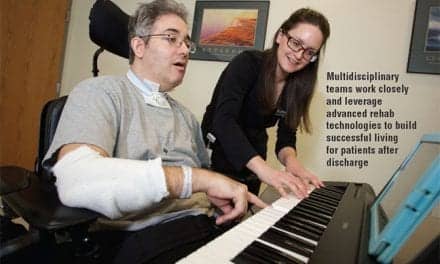April 23, 2008
Vermont became the 10th state to require health insurance companies to cover prosthetic care as they do all essential medical care when Gov James Douglas signed a bill into law requiring health insurance plans to provide their members with coverage for prosthetic devices at least equivalent to that provided by the federal Medicare program. The measure is designed to keep health insurance companies from imposing special exemptions or financial caps on prosthetic benefits.
"This law is very important to Vermont residents living with the loss or absence of a limb who are seeking meaningful prosthetic care coverage from their health insurers," says Paddy Rossbach, CEO of the Amputee Coalition of America (ACA), which supported the new law. It mandates that health insurance plans offer coverage for prosthetic care without caps and co-pays that restrict access to prescribed prosthetic devices.
Vermont joins California, Colorado, Indiana, Maine, Massachusetts, New Hampshire, New Jersey, Oregon, and Rhode Island in protecting access to prosthetic care through meaningful health insurance coverage.
Thirty other states are working with the ACA to advance health insurance parity. The ACA also supports a federal prosthetic parity bill that was recently introduced in the House of Representatives that would ensure access to prosthetic care to individuals covered by health insurance provided by their employers.
According to Rossbach, studies show that appropriate prosthetic coverage adds an added cost of 12 cents to 35 cents per month to insurance premiums.
“Not only does providing prostheses cost very little to the general insured population, it also saves money in the long run. The subsequent cost to the health care system of the secondary conditions that result from a sedentary lifestyle, including diabetes and obesity, far exceeds that of providing prosthetic care. In addition, the lack of productivity places a substantial burden on society. The Vermont law makes certain that insured, working amputees can continue supporting their families. It ensures that the tragedy of children living with limb loss is not compounded by forcing them to spend the rest of their childhood in a wheelchair, when help is readily available," Rossbach says.
Source: Amputee Coalition of America




